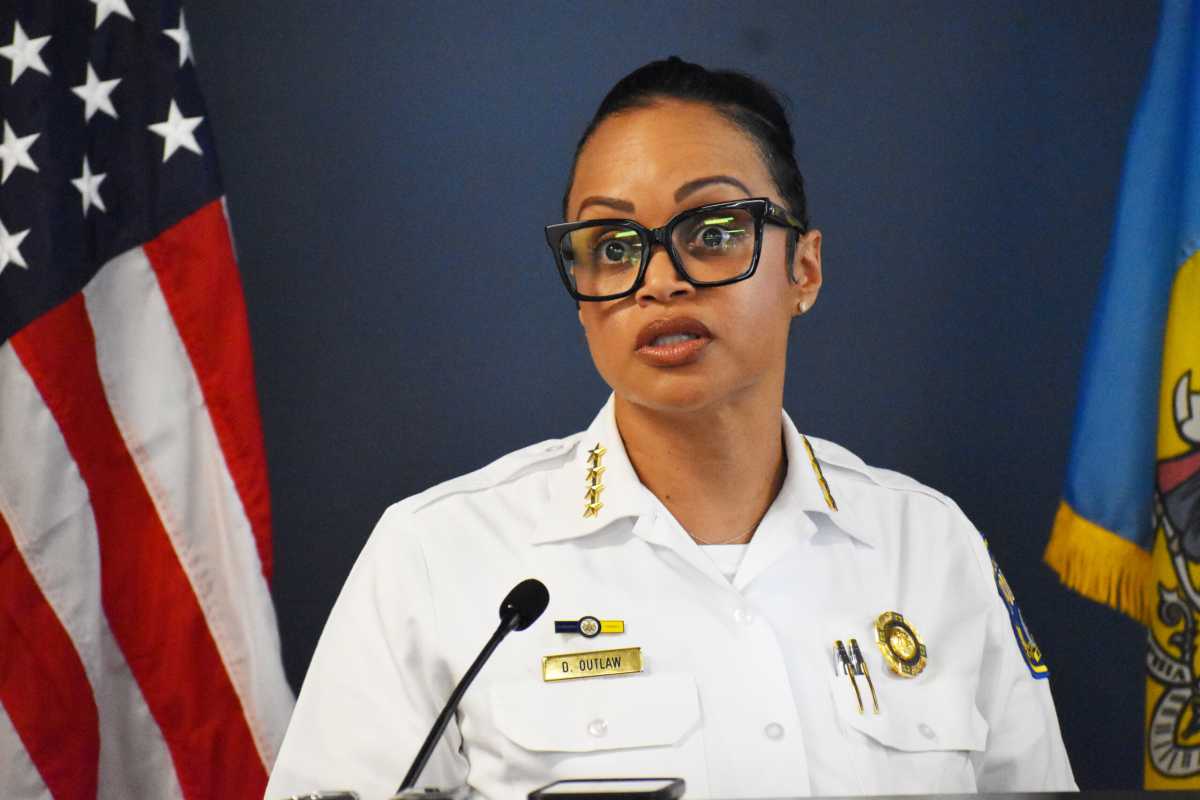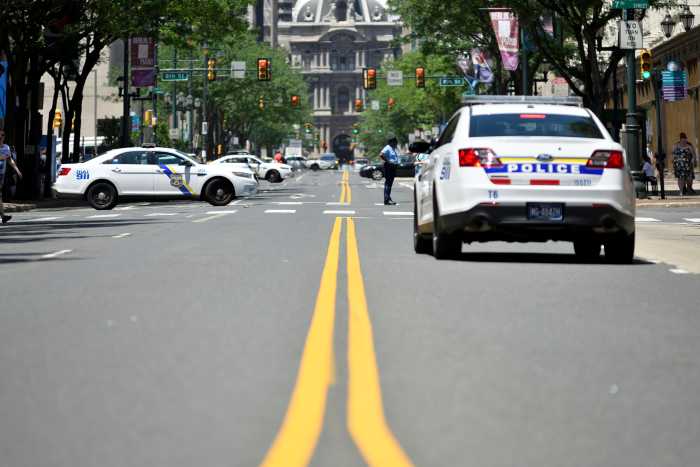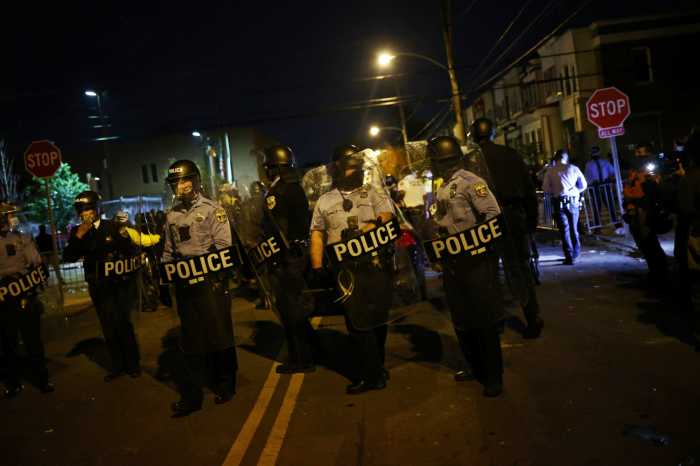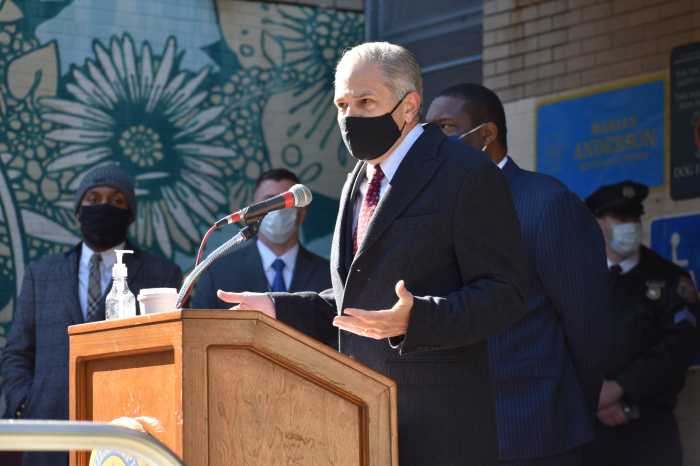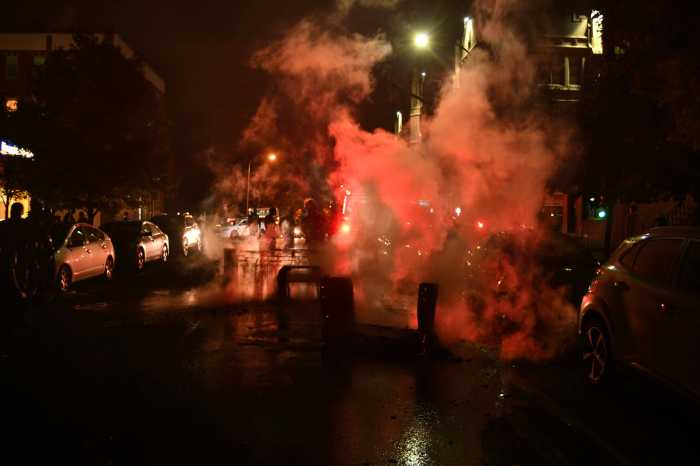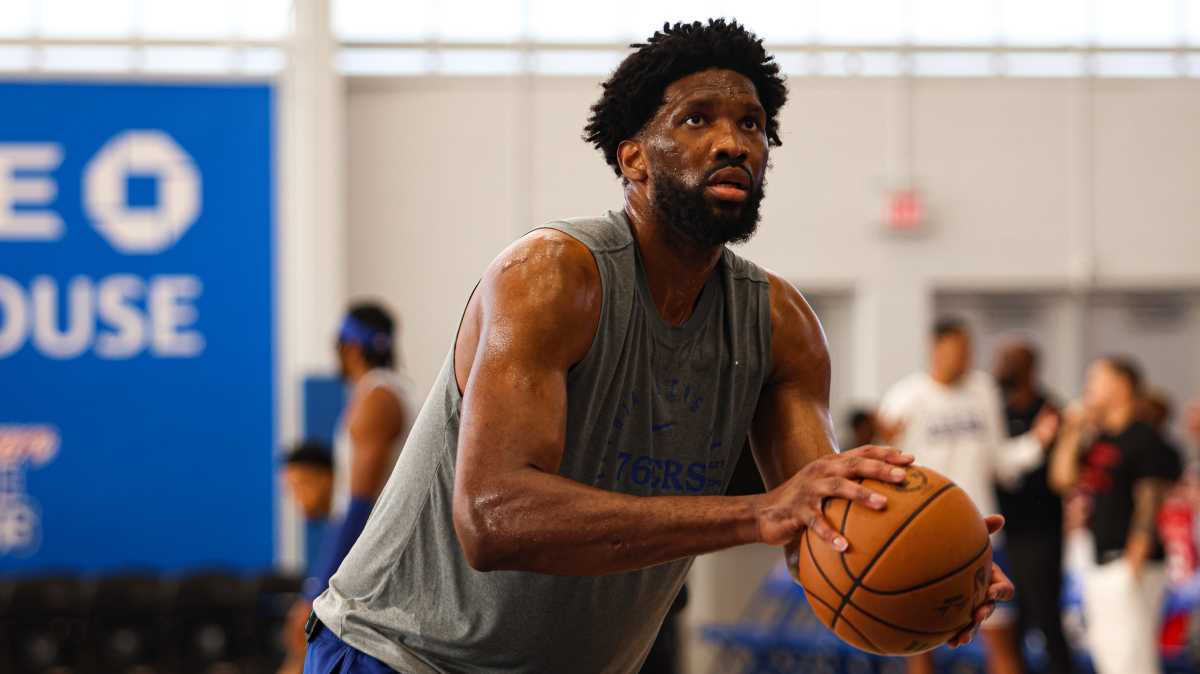Commissioner Danielle Outlaw is planning to resign from the Philadelphia Police Department later this month to take a job in New York.
Outlaw has accepted a position as the chief deputy security officer for the Port Authority of New York and New Jersey, and her last day as commissioner will be Sept. 22. Mayor Jim Kenney said he will appoint First Deputy Commissioner John M. Stanford Jr. to serve as interim commissioner.
“It has been my honor and privilege to serve during Mayor Kenney’s administration and alongside each member of the Philadelphia Police Department,” Outlaw said in a statement distributed through the mayor’s office.
“The hard work, resilience, and professionalism of our force is truly commendable,” she continued. “Our team has shown incredible adaptability and has worked tirelessly to maintain our pillars of organizational excellence, crime prevention and reduction, and community engagement and inclusion even in the face of adversity.”
Outlaw became the city’s first Black female police commissioner when she was appointed in early 2020, and she was greeted with a number of early challenges, including the coronavirus pandemic and increasing gun violence.
She also quickly drew criticism, particularly for her department’s response to racial justice protests following the police killing of George Floyd.
“Commissioner Outlaw has worked relentlessly for three and a half years during an unprecedented era in our city and a number of crisis situations, and she deserves praise for her commitment to bring long-overdue reform to the department after years of racism and gender discrimination prior to her appointment,” Kenney said Tuesday in a statement.
Kenney also credited Outlaw for declining crime numbers. Homicides are down 20% compared to this point last year, and the total number of shooting victims has dropped 23%, according to police data.
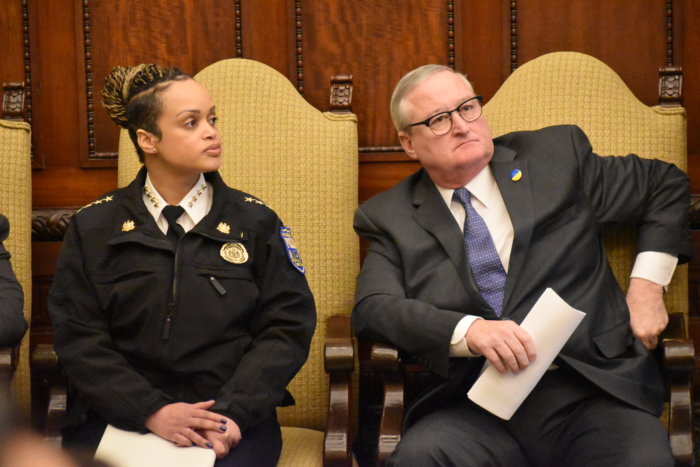
Outlaw’s decision to step away from the department comes about two months before Philadelphia elects a new mayor, and it’s unclear whether the heavy favorite in the race, Democratic nominee Cherelle Parker, would have retained her.
Parker, during the crowded primary, maintained that she did not want to make personnel pronouncements on the campaign trail.
“While there will be many Monday morning quarterbacks second guessing [Outlaw’s] performance and decision-making, I have nothing but a great deal of respect and admiration for the job that she has done for our city,” Parker said Tuesday.
Republican mayoral candidate David Oh told Metro in June that he would replace Outlaw because, in his view, she has lost the confidence of her officers and the public. On Tuesday, he said she was hamstrung by the Kenney administration, which he said has “strained relations with its police force.”
John McNesby, president of Fraternal Order of Police Lodge 5, said Outlaw’s announcement surprised him, and he characterized it as a “positive move.”
“Not much got done except her being in that position,” he said in an interview. “We look forward to the next commissioner and working with John Stanford for the next few months.”
Stanford joined the PPD in 2002, and he previously oversaw the department’s Internal Affairs Division. He has also served as head of the police’s public affairs unit and captain of West Philadelphia’s 19th District.
“I think he’ll do well. I think he’s a good communicator,” McNesby said. “He’s a good police officer, a good administrator, and I think he’ll fill into that role nicely.”
McNesby said he hopes Stanford is considered as part of the hiring process for a permanent commissioner. The FOP is urging this mayoral administration – and the next – to promote someone from within the PPD.
Kenney’s communications director, Sarah Peterson, told Metro that “the administration is working quickly to establish a permanent leadership plan.”
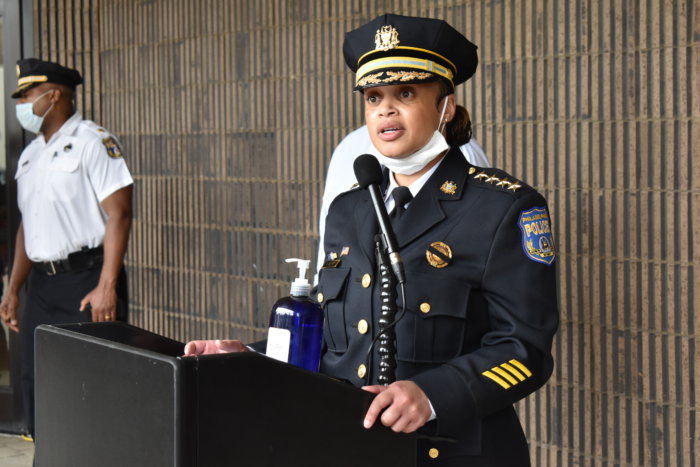
Outlaw came to Philadelphia following a stint as police chief in Portland, Oregon, and two decades in the Oakland Police Department.
Weeks after she arrived, Police Corporal James O’Connor was fatally shot while attempting to serve an arrest warrant in Frankford and the PPD enacted policies to respond to spread of COVID-19.
Calls for her resignation came less than a year into her tenure, after the New York Times, City Controller Rebecca Rhynhart and others questioned her department’s decision to use tear gas to disperse protesters in June 2020 on the Vine Street Expressway.
“Do I deserve to be here? Absolutely and some,” she said at a news conference in January 2021. “Did I lead this department in the last year? Absolutely and some.”
Outlaw had previously apologized for using the chemical agent, which had not been used in Philadelphia for more than 30 years, and she admitted that the PPD was not prepared to handle the unrest in the aftermath of Floyd’s killing.
Meanwhile, gun violence, during her time as commissioner, became the top issue in the city by many measures, dominating the mayoral primary earlier this year. Homicides rose from 353 in 2019 to a peak of 562 in 2021.
More recently, the PPD’s handling of the Aug. 14 fatal police shooting of 27-year-old Eddie Irizarry Jr. has drawn scrutiny.
A police information officer told reporters at the scene that Irizarry had gotten out of his car with a knife and “lunged” at the officers who pulled him over. Evidence, including body-worn and surveillance camera footage, later revealed that Irizarry had remained in the driver’s seat with his window closed.
Outlaw moved to fire the officer who opened fire, Mark Dial, citing his failure to cooperate with an internal investigation. A criminal probe is also ongoing.
In her new role, Outlaw will help oversee major security functions, including public safety, emergency management and cybersecurity, the Port Authority of New York and New Jersey said in a statement.
The Port Authority, which has its own police force, manages bridges, airports, tunnels, bus terminals, the World Trade Center campus, a seaport and the PATH transit service in North Jersey and New York.



